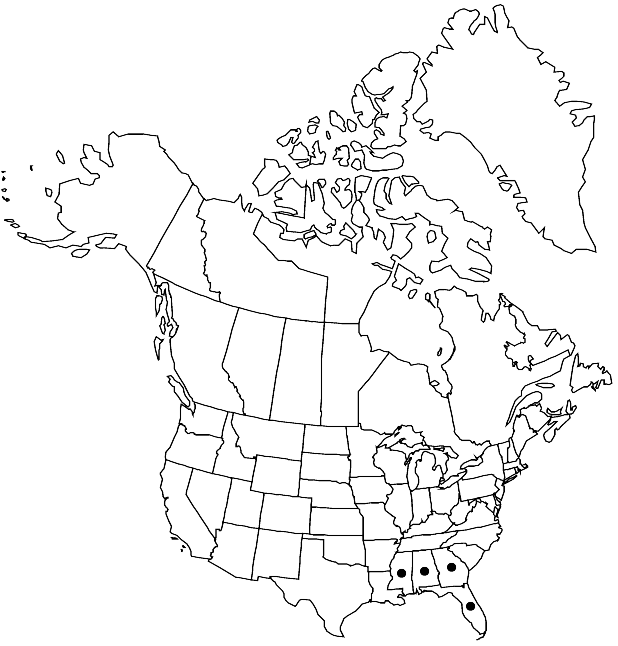Difference between revisions of "Polanisia tenuifolia"
Fl. N. Amer. 1: 123. 1838.
FNA>Volume Importer |
imported>Volume Importer |
||
| (One intermediate revision by the same user not shown) | |||
| Line 8: | Line 8: | ||
}} | }} | ||
|common_names=Slender clammyweed;pineland catchfly | |common_names=Slender clammyweed;pineland catchfly | ||
| + | |special_status={{Treatment/ID/Special_status | ||
| + | |code=E | ||
| + | |label=Endemic | ||
| + | }} | ||
|basionyms= | |basionyms= | ||
|synonyms={{Treatment/ID/Synonym | |synonyms={{Treatment/ID/Synonym | ||
| Line 58: | Line 62: | ||
|publication title=Fl. N. Amer. | |publication title=Fl. N. Amer. | ||
|publication year=1838 | |publication year=1838 | ||
| − | |special status= | + | |special status=Endemic |
| − | |source xml=https:// | + | |source xml=https://bitbucket.org/aafc-mbb/fna-data-curation/src/2e0870ddd59836b60bcf96646a41e87ea5a5943a/coarse_grained_fna_xml/V7/V7_268.xml |
|genus=Polanisia | |genus=Polanisia | ||
|species=Polanisia tenuifolia | |species=Polanisia tenuifolia | ||
Latest revision as of 22:32, 5 November 2020
Annuals, 20–45(–90) cm. Stems usually unbranched, sometimes branched (reddish purple); hairs stalked, glandular throughout. Leaves: petiole green to purple, subterete, (0.2–)1–3 cm; leaflet blade (conduplicate), linear, 1–5 × 0.05–0.2 cm, margins entire, apex obtuse, mucronulate, surfaces sparsely glandular abaxially, glabrous or sparsely glandular adaxially, (fleshy). Racemes 1–3 cm (6–8 cm in fruit); bracts trifoliate, elliptic, 5–15 mm. Pedicels 5–15 mm. Flowers: sepals (reflexed), pale yellow, lanceolate to deltate, 1.6–2.6 × 0.7–1.2 mm, clawed, margins entire, apex acute to obtuse, glandular; petals white, oblong-ovate, abaxial pair 1.5–3 × 1–2 mm (6 or 7-lobed), apex emarginate to lacerate, adaxial pair 3.5–5 × 2–3 mm (barely clawed, 4 or 5-lobed), apex emarginate to lacerate; nectary glands yellow (drying purple), 0.5 mm; stamens 8–13, slightly exserted, yellow, 3–6 mm; anthers yellow with maroon tip, 1–2 mm; gynophore 1.7–4 mm in fruit; ovary 2.5–5(–7) mm; style persistent in fruit, 2.5–4.5 mm; stigma red. Capsules 40–60 × 2–4 mm, reticulate, glandular or glabrous. Seeds 18–36, reddish brown, spheroidal, 0.7–0.9 mm, pebbled (without transverse ridges). 2n = 20.
Phenology: Flowering spring–late summer.
Habitat: Scrub, dry pinelands, oak-pine woods, sandhills, lakeshores
Elevation: 0-100 m
Distribution

Ala., Fla., Ga., Miss.
Discussion
Polanisia tenuifolia is restricted to the Coastal Plain Province, from Florida to Mississippi, and Georgia. The common name catchfly refers to insects sticking to the viscid glandular secretions of the herbage. The same name is given also to some species of Silene (Caryophyllaceae) for the same reason.
Selected References
None.